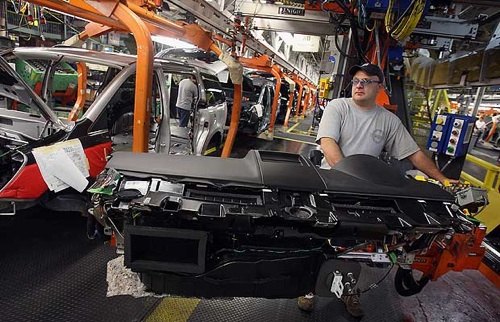Bailout Watch 521: Canadians Hosed by Chrysler
Time steps up to the e-plate with some timely cross-border bailout comparative analysis. “Canada is paying a significant premium over the U.S. to save Chrysler jobs at home, with no guarantees that the billions it is laying at the automaker’s door will ever be repaid or do anything to help maintain the country’s 20% production share of the North-American auto industry.” Drum roll . . . “Ottawa and the Ontario government are contributing a total of $3.2 billion in loans to keep Chrysler Canada alive, including $850 billion extended to the ailing automaker at the beginning of the year.” No, no, it’s a misprint. But even so, “the Canadian rescue package works out to more than $340,420 for every employee at Chrysler Canada, which has 9,400 hourly and salaried workers on payroll. That’s 15% more than the $295,000 per employee that Washington is shelling out to save about 40,000 Chrysler jobs in the U.S.” Why do I get the feeling that these numbers are lowball estimates? Because they are?
More by Robert Farago


































Comments
Join the conversation
Psar, "1971 was very different, economically speaking. The earning power and employability of the middle class has badly eroded since then." No. Not even close. First, you need to define middle class (and in your case country). Second, you need to avoid the average household earnings trap, it's a lie, the average household has fewer people, actual average AND median is up, way up. Median occasionally retreats in the short term, but never over a ten year period. The whole gap argument is a lie built on a deception. Then you need to say what you meant by employability. You may have a point there, but I don't know the facts, or what you mean.